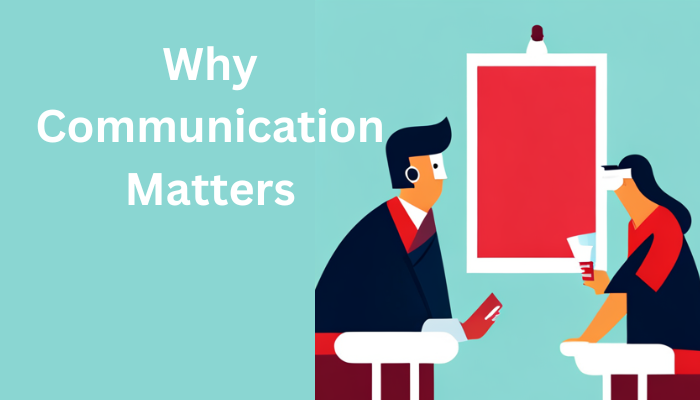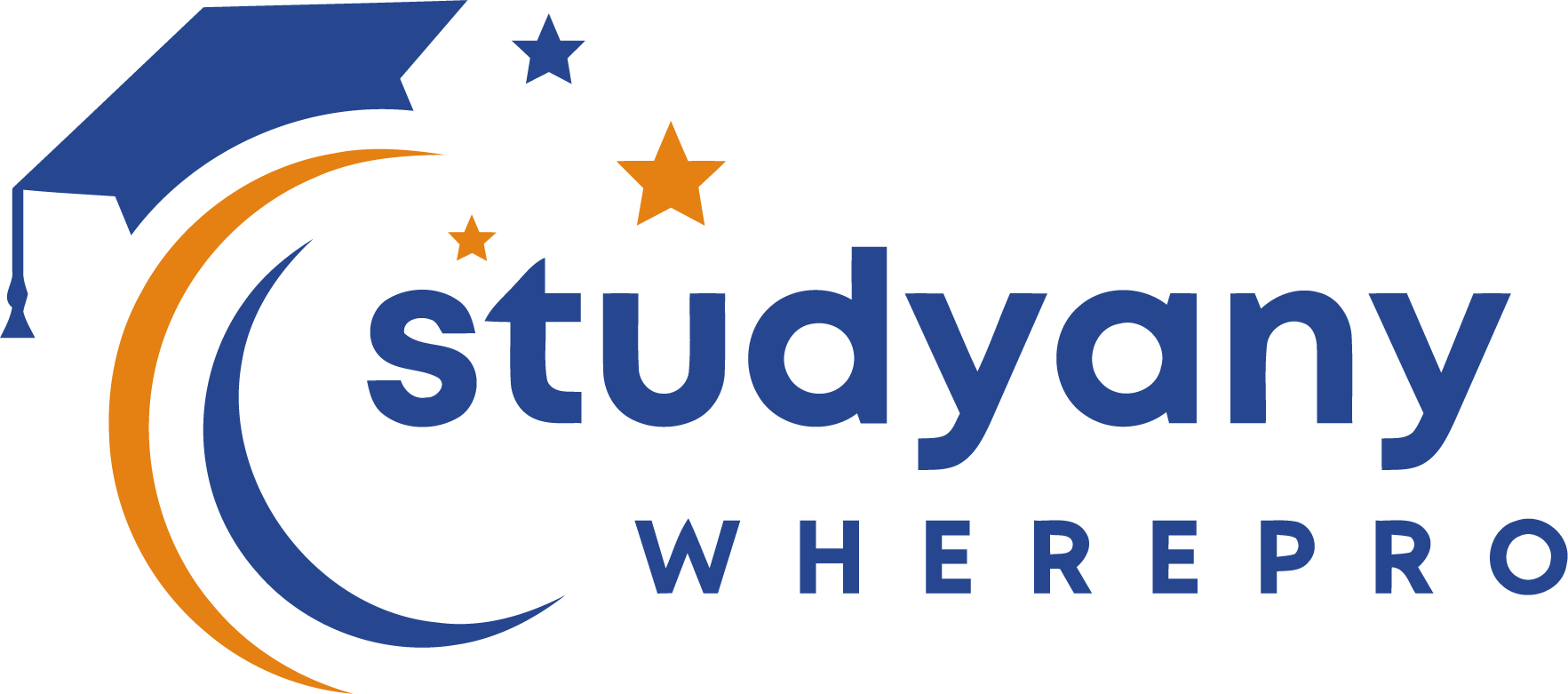Now more than ever, in an overcrowded job market differentiation is key. It is because of your resume and merits that you hold the privilege, in addition to other things, however these without help from anyone else are not what will land you the position. What sets you apart? Effective communication. This skill can lead to a wealth of opportunities, lasting relationships and it makes you irreplaceable in any corporation. In this blog post, we will be helping you understand the basics of communication and how it can lead to job opportunities right away.
Why Communication Matters

Communication involves more than merely speaking and listening. It is about expressing your ideas and understanding others accurately. By focusing on relevant areas like sharing of information, conflict resolution and team building in the workplace, effective communication is beneficial. One of the most important soft skills an employer seeks.
| Positive Aspects | Negative Aspects |
|---|---|
| Enhances Team Collaboration | Miscommunication Risks |
| – Effective communication fosters better teamwork and collaboration.<br>- Helps ensure that all team members are on the same page and working towards common goals. | – Poor communication can lead to misunderstandings and errors.<br>- Miscommunication may cause conflicts and reduce overall team efficiency. |
| Improves Problem-Solving and Innovation | Potential for Information Overload |
| – Clear communication facilitates effective problem-solving and decision-making.<br>- Encourages sharing of ideas and innovative solutions. | – Excessive communication or too many details can overwhelm employees.<br>- Information overload might lead to confusion and decreased productivity. |
| Strengthens Professional Relationships | Time and Effort Intensive |
| – Builds stronger relationships with colleagues, clients, and stakeholders.<br>- Enhances trust and mutual respect in professional interactions. | – Effective communication requires a significant investment of time and effort.<br>- Maintaining clear and consistent communication can be challenging, especially in large teams. |
| Boosts Career Advancement Opportunities | Risk of Misinterpretation |
| – Strong communication skills are often key to career growth and advancement.<br>- Helps in networking, personal branding, and creating positive impressions. | – Messages can be misinterpreted due to differences in communication styles.<br>- Risk of unintentional offense or misunderstandings if not carefully managed. |
| Facilitates Better Client and Customer Interactions | Challenges in Cross-Cultural Communication |
| – Effective communication improves client and customer satisfaction.<br>- Helps in understanding and addressing their needs and concerns. | – Cross-cultural communication can be complex and challenging.<br>- Differences in language and communication styles may affect the quality of interactions. |
How Communication Affects Job Hunting
In the job search your communication can either save you or break you. Whether you are writing a cover letter or answering questions in an interview, clear communication is paramount to your success at every step of the way. Employers want to know if you can communicate clearly, actively listen and interact with your peers correctly.
Confidence From Communications
One is a byproduct of the other (you communicate you are confident). It all links back to the more you practise communicating, the easier and more confident it becomes. This confidence comes across in interviews, which makes you a desirable candidate. The ability to genuinely convince employers that you are valuable.
Mastering the Dream Art of Verbal Objurgation
Verbal this is how a direct communication happen between multiple players via their thoughts! No matter if you are in an interview, a meeting or just speaking with friends to order some food and drink easily getting your point across is crucial.
Clear and Concise Speaking
Speak clear and straight to the point No jargons or too complex. Practice speaking in short, direct sentences. This will make you more easily digestible and shed a positive light on your ability to communicate in confidence.
Active Listening
Communication isn’t all about talking but listening as well. Real listening entails an active participation in learning what is being uttered, and then thinking about how you want to respond. This is respectful and shows that you hear them, both important aspects of making a good impression with your future residents.
Voice & Speed Control
But the way that you say something, your vocal Inflection and speed at which you speak can be very important in how it is digested. The calm, steady tone is confidence and often a rushed pace indicates nervousness. Try speaking more slowly with a friendly, but firm tone.
Non-Verbal Influences on Communication
Body language, facial expression & eye contact constitute nonverbal communication. Frequently, less is more. (or what you say without words can have the same impact as your verbal counterparts.)
Understanding Body Language
But the way you appear through your body language can show dampened confidence or feeling less solid about it all. Be confident, look him/her in the eye when you speak and use body language to stress your words. Do not stand there with your arms are crossed or slouched over, this may give off the bad impression of being defensive or uninterested.
Facial Expressions
Match your facial expressions to what you say If you smiled, it creates a friendly and positive vibe, on the other hand frowning or looking away could mean distant or dishonest. Exercise your ability to smile with an open heart.
Eye Contact
When you make eye contact, it projects confidence and thus a relationship with your audience starts to build. Look people in the eye during conversations, not too long though that you make them uncomfortable. Instead opt for something natural and balanced.
Written Communication Skills
Written communication is the other critical factor in effective communication. Your emails, your reports – everything you have ever written proves the level of professionalism and precision that exists within.
How to write an amazing cover letter
Think of your cover letter as a handshake with an employer. And it can be the first impression you have to make on one. With that in mind, write a well thought out one page letter articulating what makes you an asset and your excitement for the position. Please have some proofreading done for typos and grammatical errors
Writing Effective Emails
One of the keys to writing professional emails is getting right to your point. It should be in a formal tone and with good grammar and punctuation. Open with a greeting, and state the reason you are getting in touch; close by thanking them for reading your message. Proof Trumps Send every time.
Creating a Stellar Resume
| Positive Aspects | Negative Aspects |
|---|---|
| Increases Job Opportunities | Time-Consuming Process |
| – A well-crafted resume can significantly increase your chances of landing job interviews.<br>- Highlights your skills, experience, and achievements effectively. | – Creating a stellar resume requires considerable time and effort.<br>- Needs ongoing updates and customization for different job applications. |
| Showcases Your Strengths and Achievements | Potential for Overemphasis |
| – Allows you to prominently display your strengths, accomplishments, and unique qualifications.<br>- Makes it easier for employers to see why you are a strong candidate. | – There is a risk of overemphasizing certain achievements, potentially overshadowing other important aspects.<br>- May lead to a resume that appears inflated or not fully representative. |
| Improves Professional Image | Difficulty in Balancing Content |
| – A stellar resume enhances your professional image and helps create a strong first impression.<br>- Demonstrates your attention to detail and professionalism. | – Striking the right balance between including enough detail and keeping the resume concise can be challenging.<br>- Too much detail might overwhelm recruiters, while too little may not fully convey your qualifications. |
| Enhances ATS Compatibility | Requires Regular Updates |
| – Optimizing your resume for Applicant Tracking Systems (ATS) increases the likelihood of passing initial screenings.<br>- Helps ensure your resume gets noticed in digital job application processes. | – Your resume needs to be updated regularly to reflect new skills, experiences, and achievements.<br>- Can be cumbersome to continually tailor and refine. |
| Provides a Competitive Edge | Risk of Generic Content |
| – A stellar resume can set you apart from other candidates and give you a competitive advantage.<br>- Helps you stand out in a crowded job market. | – There’s a risk of producing a resume that may appear generic if not tailored to specific job roles.<br>- Important to ensure it remains unique and customized to each application. |
Your resume must follow a clear, readable structure detailing your skills and accomplishments. Frame Your Experience in Bullet Points Get to the point: Action verbs are your best friend. Customize your resume with the skills and achievements in each job to be sure you are showing off what is most important for that particular job.
Digital communication etiquette: Given that most communication now takes place online, understanding digital etiquette is just as important as understanding spoken and written communication. Mastery of video calls: video calls are now fixtures of job interviews and professional meetings. Ensure a good connection, quiet environment, good lighting, and a professional dress code. Keep eye contact: while it’s tempting to check your reflection on the screen, aim to keep eye contact by looking at the camera. Social media: your behavior on social media can be a reflection of your professional image. Keep your social media clean and focused on professionalism and use platforms like LinkedIn to network within the industry and demonstrate expertise. Email courtesy: remember to keep emails professional sounding – formal language use, proper punctuation, a respectful tone, and quick responses. Do not use slang or overly casual language; instead, pretend you are writing a letter. Overcoming communication barriers: no matter how good a communicator you are, communication barriers exist and must be identified and overcome. Language barriers: if English is not your first language, practice grammar, pronunciation, and spoken fluency often. Use language learning apps, attend classes or join social clubs, or speak with a native speaker. Your new language learning and struggle are an impressive factor to potential employers. Cultural barriers: different cultures communicate differently, and cultural barriers exist. Familiarize yourself with the practices and norms of the culture in which you’re working, particularly if it is a diverse environment. Being able to work within another culture’s communication style is something employers value. Difficult conversations: no one enjoys having difficult conversations, but they are a part of life in any job. Approach them with empathy, stay calm, listen to your opposition’s views, and seek a constructive resolution. How you handle them impresses employers. Continuing to develop: there is always something to improve as a communicator.
Continuous Learning
Never stop learning. Learn from workshops, books and courses on communication. Continue to learn and stay abreast of current methodologies.
Seeking Feedback
Seek feedback from peers, friends and mentors. That you know others will perceive your communication differently from what they should, then make the necessary adjustments.
Practicing Regularly
Practice makes perfect. Use every opportunity to speak, be it a workshop (presentation), meeting or just regular chit-chat. The better you get, the more confident and competent will become.
Establish a Powerful Professional Network
Making connections is their secret weapon for moving up in the world. Good communication is key to a successful network and its upkeep.
Attending Networking Events
Go to industry events and conferences. Well, Formulate real discussion with different experts. Also, make sure to connect online and follow up after the event
Leveraging Online Platforms
If your business has to do with professional services choose a social media platform like LinkedIn in order of making great contacts I the related industries. Post related content, join in on discussions and reach out to the people you have connected with every now and again. A strong online presence can mean new possibilities.
Maintaining Relationships
Networking is not just about networking; it’s equally to network. By keeping in touch with your network you open up the possibility of: Provide help and ask for assistance when necessary.
Power of Communication in our Career
Good communication is essential for employability and promotion.
Showcasing Leadership Skills
Leaders have to be good communicators. Show how you lead by working with your team, conflict-solving and decision making.
Salary and Promotions negotiations
Having it all down on paper really helps to practice discussion with clear confidence and clarity in your communication, particularly when negotiating salary or promotions. Logical, based on your contributions and achievements. Be assertive but respectful.
Creating a Good Professional Profile
This should be a given, as it is more that likely the reason for your constant promotion or lack there of. These habits will have your co-workers and superiors respecting, valuing your input greatly.
By Learning Effective Communication You Can Get a Job Easily:
| Pros | Cons |
|---|---|
| Enhances Job Interviews | Not a Standalone Solution |
| – Effective communication skills can improve your performance in job interviews.<br>- Helps you present your qualifications and experiences more clearly and persuasively. | – While important, communication skills alone may not guarantee a job.<br>- Other factors like experience, skills, and fit for the role also play crucial roles. |
| Improves Networking Opportunities | Requires Continuous Practice |
| – Strong communication skills enhance your ability to network effectively.<br>- Can lead to valuable connections and job referrals. | – Mastering effective communication requires ongoing practice and development.<br>- It can be challenging to continuously improve and adapt communication skills. |
| Demonstrates Professionalism and Confidence | Potential for Overemphasis on Style |
| – Shows potential employers that you are professional and confident.<br>- Effective communication can make a positive impression on hiring managers and teams. | – Focusing too much on communication style might overshadow other important qualifications.<br>- Risk of prioritizing style over substance in interactions. |
| Facilitates Better Team Integration | May Not Overcome All Barriers |
| – Good communication helps in better integration and collaboration within a team.<br>- Can improve your ability to work effectively with colleagues and supervisors. | – Effective communication alone may not resolve other challenges such as lack of relevant experience or specific job skills.<br>- Other barriers might still need to be addressed. |
| Enhances Resume and Cover Letter Impact | Varied Impact Across Industries |
| – Strong communication skills can enhance the quality of your resume and cover letter.<br>- Helps in crafting clear, compelling job application materials. | – The impact of communication skills might vary depending on the industry or job role.<br>- Some roles may prioritize technical skills or specific experiences over communication abilities. |
Jump to FAQ
Why Communicate in a Workplace?
I know that this one is going to sound obvious, but it really does hold the most weight -nobody can do their best work if we arent communicating effectively. Collaboration: Promotes working together Productivity: Everyone is productive when they are in the right mindset to work Good environment If so acted upon. Helps in clearly transferring information and more readable way of understanding from a user point of view as well reducing ambiguity which allows everyone to do an effective job on the go.
What is public speaking.
Effective public speaking is the skill that require practice and preparation. The first step is to develop his ideas and create a structure for the speech. Start rehearsing in the mirror, record yourself or present to your friends and family Ask for feedback from clients… improve bibliographic outputs
How do you write a professional email?
The following is a good example of how to write an email in a professional manner thateven professionals would appreciate. I. Greetings Your address, and the receiver should be determined by place settings either atcheers@email )) Cheer disagrees with you emails; they need hamlormatiotics… Keep your message short and to the point with a professional conclusion. Remember that you should always include in your email a good proofreading before being sent to avoid any mistakes and correct typos.
What should I do when there are language prohibitions in my cross-cultural office?
Dealing with communication differences in a multicultural workplace quite clearly requires an understanding and appreciation of how different people communicate (read: etiquette) across the globe. Practice active listening, create easily digestible languge and have the receiver of information repeat back in their language or words. Cultural awareness and sensitivity are crucial steps to better communication.
Why is Networking Important for Job Search?
Networking is an integral part of growing your career. It helps you establish a professional network, learn about the trends in your industry, and uncover new job openings. This keeps you in the loop about what is going on with your field, but can also lead to mentorship or collaborative opportunities that benefit your career.
Libraries How do I network effectively in remote work?
When working remotely, you stay in touch and keep updated on your task with the help different digital tools – like video conferencing or instant messaging & good old email. Check in with your team often, be explicit about what you expect and when of them, and give frequent updates. Go out of your way to be responsive and open an avenue for questions or concerns.
How should I negotiate that in a winning direction?
In order to win in a negotiation, prepare well by defining your objectives and knowing the value you bring. State your case assertively and distinctly, be an active listener to the other person’s viewpoint, and strive for a win-win solution. Stay patient and remain open to reasonable concessions when necessary.







You are doing a great job, I hope you will do it this way
Thank you very much for your feedback
Very well written, I enjoyed reading it
Thank you very much for your feedback
Good to read your article, I understand many things, many things were unknown
Thank you very much for your feedback
Working very well
Thank you very much for your feedback
Very nicely put together topics
Thank you very much for your feedback